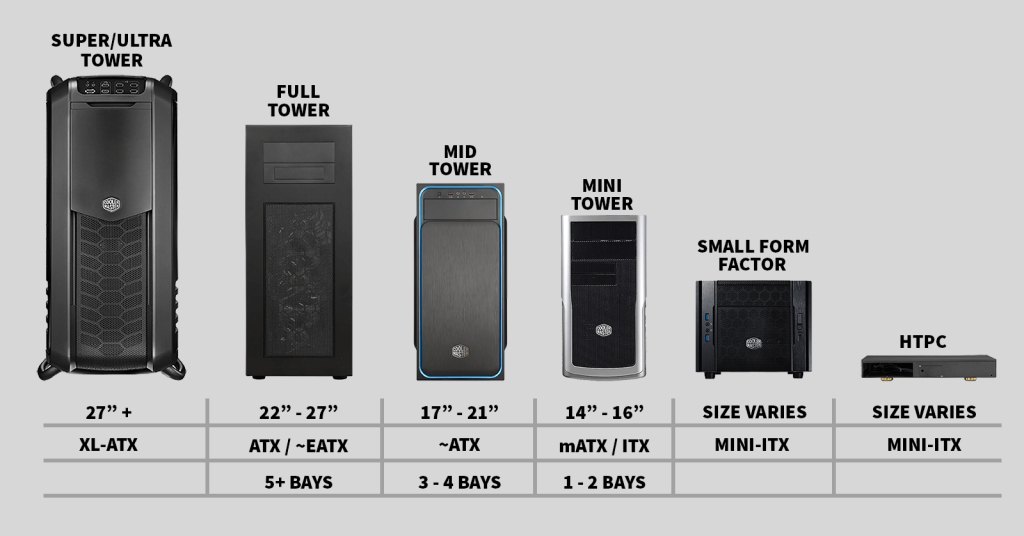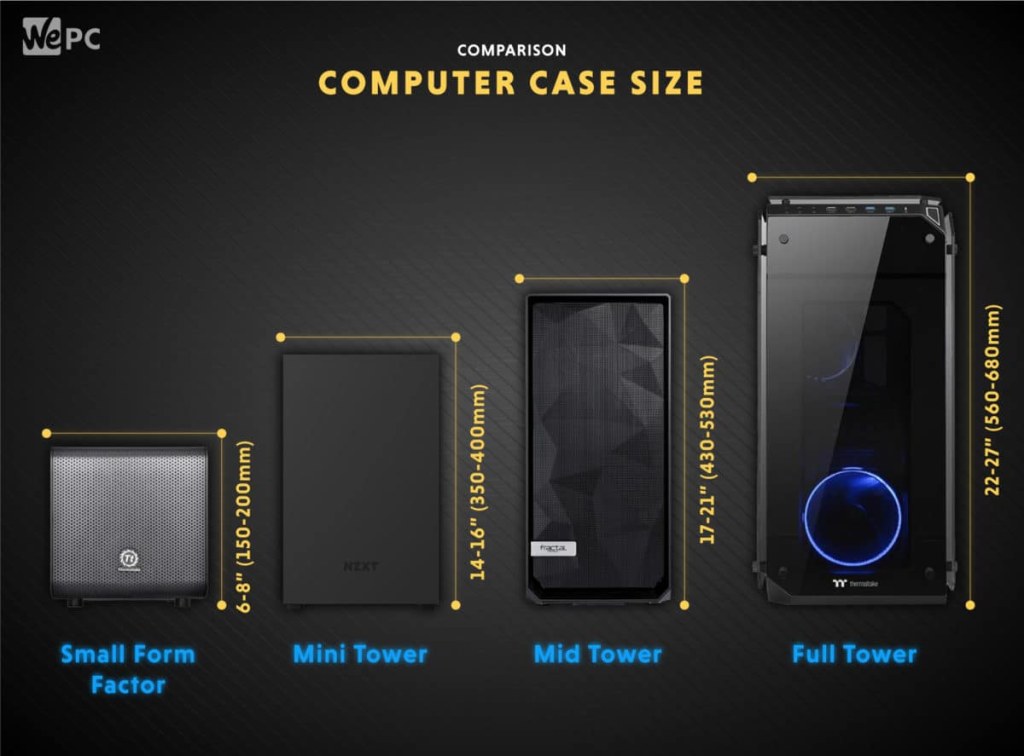PC Desktop Sizes
Gone are the days when computers were bulky and took up an entire room. With advancements in technology, desktop computers have become more compact and sleek. In this article, we will delve into the world of PC desktop sizes, exploring their importance, advantages, and disadvantages. So, whether you’re a tech enthusiast or someone looking to buy a new desktop, this article is for you!
Introduction
Dear Readers,
Welcome to our comprehensive guide on PC desktop sizes! In today’s digital age, desktop computers play a vital role in various aspects of our lives. Whether it’s for work, gaming, or personal use, choosing the right desktop size is crucial. In this article, we will provide you with all the necessary information to make an informed decision. So, let’s dive in and explore everything there is to know about PC desktop sizes!
What are PC Desktop Sizes?
![pc desktop sizes - PC Case Sizes: All You Need To Know [] pc desktop sizes - PC Case Sizes: All You Need To Know []](https://desktop-world.info/wp-content/uploads/2023/09/pc-case-sizes-all-you-need-to-know.jpg)
Image Source: agilitywriter.ai
PC desktop sizes refer to the physical dimensions and form factors of desktop computers. These sizes can vary significantly, ranging from compact mini PCs to larger tower designs. The size of a desktop computer is determined by factors such as the motherboard form factor, the number of components it can accommodate, and its overall dimensions.
Who Should Consider PC Desktop Sizes?
PC desktop sizes are a crucial consideration for both individuals and businesses. If you have limited desk space or prefer a clutter-free environment, a compact desktop size might be ideal. On the other hand, if you require extensive hardware for tasks like video editing or gaming, a larger desktop size can provide the necessary expansion options.
When to Choose a PC Desktop Size?

Image Source: easypc.io
The decision to choose a particular PC desktop size depends on your specific needs and requirements. If you often travel or move around frequently, a compact size can offer portability. However, if you have a dedicated workspace or require extensive hardware capabilities, a larger desktop size might be more suitable.
Where to Find PC Desktop Sizes?
PC desktop sizes can be found at various computer stores, both online and offline. Major manufacturers such as Dell, HP, and Lenovo offer a wide range of desktop sizes to cater to different user preferences. Additionally, you can also customize your desktop size by selecting the appropriate components and form factors.
Why are PC Desktop Sizes Important?
The importance of PC desktop sizes lies in their impact on user experience and functionality. Choosing the right size ensures that you have sufficient space for your desktop on your desk or workstation. It also determines the potential for expansion, allowing you to upgrade or add new components in the future. Moreover, the size of your desktop computer can also affect its cooling and ventilation capabilities, which are crucial for performance and longevity.
How to Choose the Right PC Desktop Size?

Image Source: wepc.com
Choosing the right PC desktop size involves considering various factors. Firstly, assess your available desk space and determine how much room you can allocate for your desktop. Next, consider your usage requirements and determine the necessary hardware components you need. Finally, research different desktop sizes and form factors to find the one that best fits your needs.
Advantages and Disadvantages of PC Desktop Sizes
Advantages of PC Desktop Sizes
1. 🚀 Powerful Performance: Larger desktop sizes provide more room for high-performance hardware, leading to improved processing power and multitasking capabilities.
2. 💾 Expandability: With larger desktop sizes, you have more space to accommodate additional components like graphics cards, storage drives, and RAM, allowing for easy future upgrades.
3. 🖥️ Multiple Display Support: Larger desktop sizes often come with multiple display ports, allowing you to connect multiple monitors for enhanced productivity and immersive gaming experiences.
4. 🔄 Better Cooling: The larger size of desktop computers enables better airflow and cooling, preventing overheating and ensuring optimal performance.
5. 🎮 Gaming Potential: If you’re a gaming enthusiast, larger desktop sizes offer more support for high-end graphics cards and other gaming peripherals, resulting in an immersive gaming experience.
Disadvantages of PC Desktop Sizes
1. 🏢 Space Requirements: Larger desktop sizes can take up a significant amount of desk space, which might not be ideal for individuals with limited workspace.
2. 💼 Limited Portability: The larger and heavier the desktop size, the more challenging it becomes to transport or move around.
3. ⚡ Higher Power Consumption: Larger desktop sizes typically require more power to run efficiently, resulting in higher energy consumption and potentially higher electricity bills.
4. 🗃️ Cable Management: With more components and expansion options, cable management can become more complex and messy, requiring additional effort and organization.
5. 📢 Noise Levels: Some larger desktop sizes may generate more noise due to additional cooling fans and higher-powered hardware components.
Frequently Asked Questions (FAQ)
1. Can I upgrade the components in my PC desktop?
Yes, desktop computers offer more flexibility for component upgrades compared to laptops. You can easily upgrade components such as RAM, storage drives, and graphics cards to enhance performance or accommodate changing needs.
2. Are larger desktop sizes always better?
Not necessarily. The choice of desktop size depends on your specific requirements. While larger sizes offer more expansion options and potential for high-performance hardware, they might not be suitable for individuals with limited desk space or those who prioritize portability.
3. What form factors are available for PC desktop sizes?
PC desktop sizes come in various form factors, including mini-ITX, micro-ATX, ATX, and EATX. These form factors indicate the size and layout of the motherboard, which ultimately determines the overall dimensions of the desktop.
4. How do I determine the right desktop size for my needs?
To determine the right desktop size, consider your available desk space, intended usage, and potential future needs. Research different desktop sizes and form factors, and select the one that aligns with your requirements.
5. Can I connect multiple monitors to a desktop computer?
Yes, many desktop computers support multiple monitor setups. Larger desktop sizes often come with multiple display ports, allowing you to connect multiple monitors for increased productivity or immersive gaming experiences.
Conclusion
In conclusion, PC desktop sizes play a significant role in determining the user experience and functionality of a computer. Whether you opt for a compact size or a larger form factor, it is essential to consider your specific needs, available desk space, and potential future requirements. By choosing the right desktop size, you can ensure optimal performance, expandability, and an enjoyable computing experience.
We hope this article has provided you with valuable insights into PC desktop sizes. Now, armed with this knowledge, you can confidently make the right choice when it comes to selecting your next desktop computer. Happy computing, friends!
Final Remarks
Disclaimer: The information provided in this article is for informational purposes only. The author and publisher do not warrant or assume any legal liability or responsibility for the accuracy, completeness, or usefulness of the information herein. The use of any information in this article is solely at the reader’s own risk.